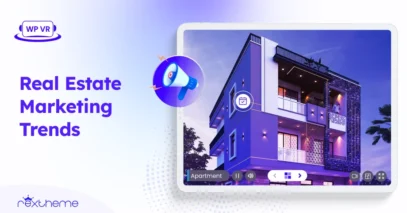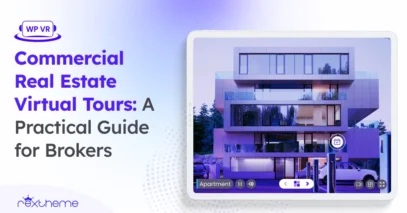You don’t need to cut your price to sell fast. You just need a smarter and more strategic approach that attracts the right buyers.
The commercial real estate market is booming and is projected to reach US$28.16 trillion by 2029.
That means more opportunity if you know how to stand out.
Through my blogs, I’ve helped clients sell for more without overcomplicating the process. With the right prep and positioning, you can do the same.
In this guide, I’ll walk you through 10 simple steps to help you sell confidently and profitably. Let’s make your next commercial sale your best one yet.
So, let’s get started,
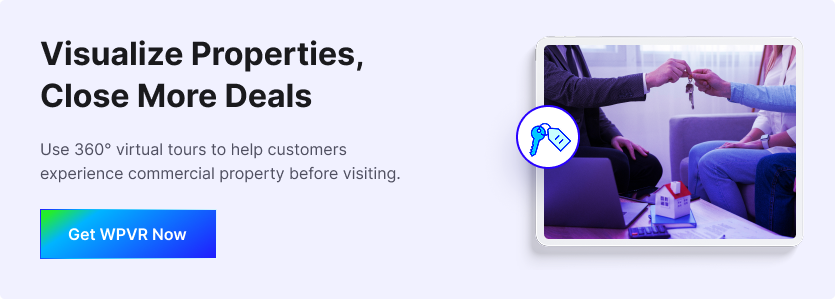
What is Commercial Real Estate?
Commercial real estate is property used for business activities like offices, shops, or warehouses. It’s different from homes because it’s meant to make money.
Owners often rent these spaces to companies and earn regular income. Knowing how to sell commercial real estate helps you get the best return when you’re ready to sell.
For example, if you own a small office building or retail store, you can sell it to a business owner or investor looking for a good location. Selling smart means planning, pricing right, and reaching the right buyers.
Different Types of Commercial Real Estate Properties
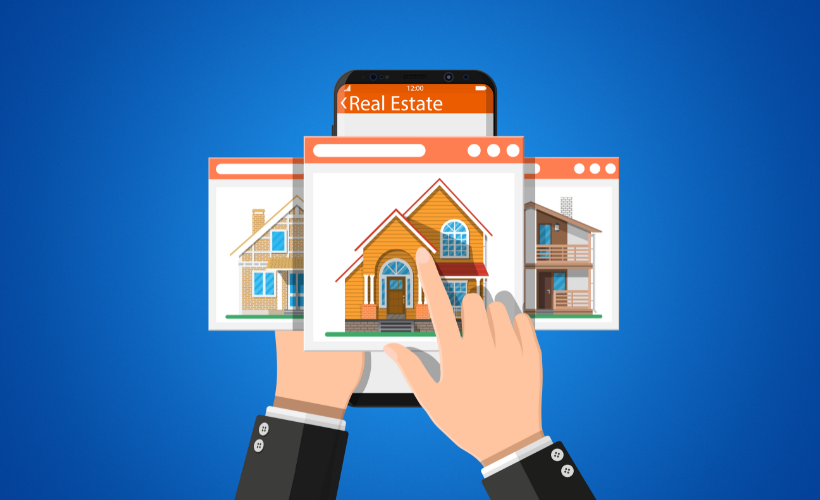
Let’s explore the different types of commercial real estate you can consider investing in or selling.
- Office Spaces: These are ideal commercial spaces primarily used for professional and administrative purposes. They include single-tenant and multi-tenant office buildings, business parks, and coworking spaces..
- Retail and Malls: Retail properties are designed for businesses to sell goods and services directly to consumers. This category includes shopping malls, strip malls, standalone stores, and storefronts in mixed-use developments.
- Restaurants and Eateries: Properties designated for dining establishments. It includes fast-food outlets, cafes, fine-dining restaurants, and food courts within malls or entertainment complexes. Consider working with an experienced broker for smooth commercial transactions.
- Industrial: Industrial properties are used for manufacturing, warehousing, distribution, and logistics. They include warehouses, distribution centers, manufacturing plants, industrial parks, and flex spaces.
- Multifamily: These properties consist of residential buildings with multiple units, such as apartment complexes, condominiums, townhouses, and mixed-use developments with residential components.
- Special Purpose: Special-purpose properties are uniquely designed for specific uses. This category includes gas stations, car washes, self-storage facilities, hotels, motels, recreational facilities, healthcare facilities, and educational institutions.
Each type of commercial real estate offers distinct investment opportunities and considerations, catering to different market demands and investor preferences.
Top 10 Steps to Successfully Sell Commercial Real Estate
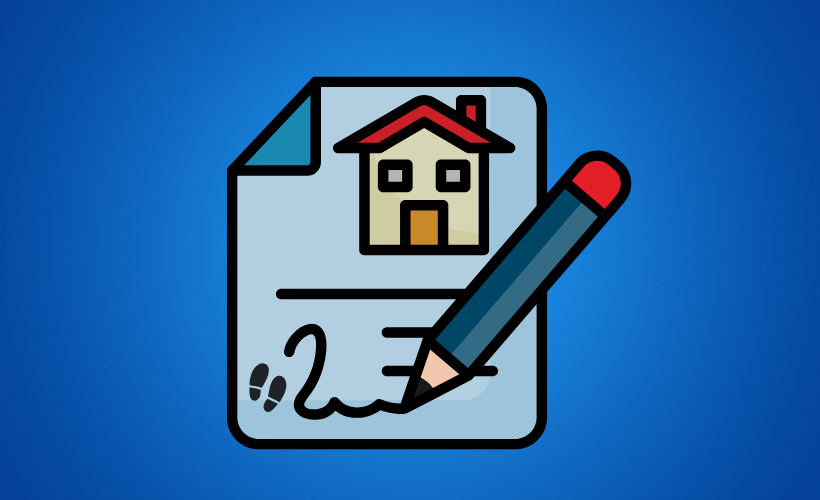
Selling commercial real estate involves more than just putting a property on the market. It requires a structured approach to ensure you not only attract the right buyers but also secure the best possible deal.
Here’s a step-by-step guide that lays out each stage clearly to help you manage the sale from beginning to end.
Step 1: Take Preparation & Research The Market
Before you jump into selling your commercial property, it’s important to lay the groundwork. Let’s start with the first and most important step. It includes:
- Know the Market: Start by checking what’s selling in your area. Look through commercial property listings and note what similar properties go for. This gives you a solid base to price your property right.
- Highlight Key Features: Think about what makes your space unique, like new upgrades or a booming location. These things can help your listing stand out from other commercial assets.
- Use Listing Websites: Browse popular platforms like the MLS and niche sites for commercial property owners. You’ll quickly spot what attracts buyers and what doesn’t.
- Do Off-Market Research: Quiet deals often have the best value. Use off-market research to discover buyer trends and increase your chances of a fast sale.
- Get a Property Appraisal: Understanding your individual property’s worth helps you stay confident. It also prevents pricing too high or too low.
- Call in Experts: Don’t hesitate to work with project management consulting firms. They offer expert guidance on staging, pricing, and marketing for the best returns.
For example, you own a retail unit in a busy Florida plaza. By checking local MLS listings, working with a CRE project management consulting team, and identifying recent buyers through off-market research, you could list your property confidently and attract solid offers quickly.
Step 2: Set Clear Objectives
After doing your market research, the next thing you need to do is get clear on your selling goals. This helps you make smart decisions moving forward.
- Define your goal: Decide whether you’re aiming to sell quickly or want the highest return. Your choice will guide your pricing and marketing.
- Set your timeline: Think about how soon you want the sale to happen. This helps you stay on track and avoid unnecessary delays.
- Plan smart upgrades: If you’re targeting a better price, consider small improvements that make your property more attractive to buyers.
Let’s say you want a fast sale, you can set a competitive price and focus on simple staging. But if you’re not in a rush, you could invest in light renovations to boost the final offer.
Step 3: Evaluate Property Value
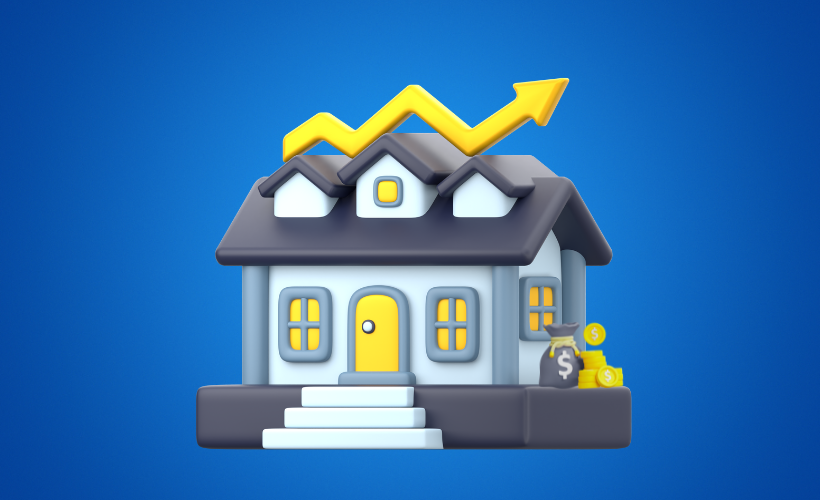
Once your goals are clear, the next move is to properly evaluate your property’s value. This helps you price it right, attract buyers, and stay aligned with your timeline.
- Analyze your property: Take a close look at your property’s location, size, and condition. These are big factors buyers will consider when comparing your options.
- Check market trends: Look at what similar commercial properties are selling for in your area. This gives you a clearer idea of what buyers are currently willing to pay for a place like yours.
- Estimate selling costs: Consider any closing fees, quick repairs, or legal expenses. Knowing this upfront helps you plan smarter and avoid last-minute surprises.
For example, you’re selling a mid-size office space in a busy district. After reviewing recent local sales and making a few easy upgrades, you set a price that feels right and gets buyer attention quickly. This is key if you want to know how to sell commercial real estate fast.
Step 4: Enhance Curb Appeal and Presentation
After evaluating the property, it’s time to focus on making it stand out. Let’s say you’ve got an unwanted commercial property, maybe a small office space you no longer use.
Before listing it, your goal is to attract the right buyers fast. Here’s how you can set the stage for a successful sale:
- Freshen the exterior: You grab a can of neutral paint and refresh the entrance. Right away, it looks more professional and catches the eye of passersby browsing property listings.
- Tidy the surroundings: You hire a landscaper to trim bushes and add clean mulch. Suddenly, your building looks like a solid investment instead of something forgotten.
- Fix what’s broken: A loose door handle, outdated light fixtures, and a chipped stair, quick repairs that make a big difference in buyer confidence.
- Declutter inside: You walk through and remove personal items, old furniture, and extra clutter. Now the rooms feel bigger, brighter, and more inviting.
- Stage with purpose: Add simple seating and decor that matches the vibe of local commercial land use, like co-working or boutique setups, so buyers can picture success inside.
For Example, a recent buyer is scrolling through listings. Your cleaned-up and staged property stands out from others on the page. It leads them to book a visit the same day. That’s the power of first impressions.
Step 5: Market the Property
After preparing and evaluating your real estate property, it’s time to get the word out. Marketing is where you turn those updates and improvements into real buyer interest.
- Leverage listings websites: Post your commercial property offerings on top platforms where serious buyers are actively browsing.
- Show off key features: Use clear photos and simple, benefit-driven descriptions. Focus on what makes your space the right property for their needs.
- Tap your network: Reach out to agents, local contacts, or a trusted real estate solutions LLC to get more eyes on your listing.
For example, you’ve just listed your space to sell property online. You include bright photos, note recent upgrades, and list it on major property listings sites. Within a few days, you get calls from both investors and business owners interested in taking a tour.
Step 6: Qualify Potential Buyers

After marketing your property, it’s important to make sure the buyers contacting you are serious and ready. This saves you time and speeds up the sales process.
- Verify financial readiness: Ask for proof of funds or a loan pre-approval backed by a smart lending process. This shows they can afford your property and helps avoid deals falling through later.
- Have a detailed conversation: Talk to buyers to understand what they want and if your property meets their needs. This keeps you focused on serious prospects.
- Offer a free property consultation: Giving advice or answering questions builds trust and helps both of you decide if this is the right match. But you need to ensure that interested parties are qualified to purchase your property with proper, comprehensive purchase management.
For example, if you’re trying to sell commercial land and a buyer contacts you through a commercial property brokerage, you can quickly check their finances and chat with them. Offering a free property consultation makes it easier to move forward with the right buyer and avoid wasted time.
Step 7: Negotiate Offers
Now that you’ve qualified buyers, it’s time to negotiate offers. How you handle this can make a big difference in how quickly and profitably you sell your commercial land.
- Review offer details: Look beyond the price. Check payment terms, contingencies, and closing dates so you know exactly what you’re agreeing to. This helps you align with current market dynamics.
- Make smart counteroffers: If an offer doesn’t meet your needs, suggest changes that protect your goals but keep the buyer interested, whether they are an owner-occupier or investor.
- Get expert help: Work with your real estate solutions LLC or commercial property buying service for guidance. Their expertise ensures your negotiation protects your interests and moves the sale forward smoothly.
Suppose you receive an offer on your commercial property, but the payment timeline isn’t ideal. You propose a counteroffer that better suits your cash flow needs, consulting your commercial property brokerage for advice.
This approach helps you close with the right buyer and maximize capital improvements.
Step 8: Due Diligence Process
After you accept an offer, the buyer will start the due diligence process. This step is key to how to sell commercial real estate fast and smoothly.
- Allow property inspections: Give the buyer access to check the property thoroughly. This builds trust and clears doubts. In this case, you can create virtual home tours.
- Provide important documents: Share leases, contracts, and any property management info so the buyer can verify everything easily.
- Fix concerns quickly: If any issues come up, address them fast to avoid delays or losing the sale.
Being open and responsive during due diligence helps you close the deal faster and with confidence.
For example, you’ve accepted an offer on your commercial property. You promptly share all lease agreements and allow inspections. When the buyer spots a small repair need, you handle it quickly. This smooth process helps you sell commercial real estate fast without setbacks.
Step 9: Finalize Closing Details

After the due diligence phase is complete and all conditions are met, it’s time to finalize the closing details. This step is crucial whether you’re selling commercial land or other types of commercial property.
- Set a Closing Date: Agree on a date that works for both you and the buyer. This gives enough time for any last-minute inspections or repairs, helping avoid delays.
- Finalize Paperwork: Double-check all contracts and legal documents to ensure they match the agreed terms. Accurate paperwork prevents issues that could delay or derail the sale.
- Prepare for Transfer: Coordinate with your real estate attorney to prepare the deed and necessary legal documents. Proper preparation ensures a smooth transfer of ownership without complications.
Taking these careful steps helps you close the sale confidently and smoothly.
For example, you pick a closing date that fits your schedule and the buyer’s. Your lawyer reviews and confirms that all paperwork is correct. On the agreed day, the deed is signed, and you complete the sale of your commercial land without any hiccups.
Step 10: Close the Deal
This is the final and most exciting step in selling commercial real estate—making the sale official.
- Sign Legal Documents: You’ll sign all the necessary papers like the deed and settlement statements. This paperwork finalizes the ownership transfer and protects both you and the buyer.
- Transfer Funds: Make sure the payment is securely sent, usually through a wire transfer or cashier’s check, so you receive your money safely and quickly.
- Record the Sale: The deed and sale documents must be filed with your local government. This step legally records the transaction and makes your sale official.
Following each step carefully helps you sell commercial real estate smoothly and confidently, from listing to closing.
For example, you sign the final papers in front of your lawyer, receive the wire transfer for your property, and the local office records the sale. Now the property is officially yours, and the deal is complete.
Once these are done, congratulations – you’ve successfully sold your commercial property.
Strategies for Selling Commercial Real Estate Fast

You’ve just learned the 10 essential steps to successfully sell your commercial real estate. Now, let’s explore some effective strategies you can use to sell your property fast and with confidence.
- Price It Right: You need to set a competitive price based on current market dynamics to attract serious buyers fast. If your price is realistic, you’ll see more interest on listings websites and from commercial property buying service agents.
- Boost Property’s Curb Appeal: Make your commercial real estate property stand out with simple capital improvements like fresh paint or landscaping. When your property looks cared for, you’ll draw more attention from owner-occupiers and investors.
- Create Virtual Tours: Use tools to craft 360-degree virtual tours so buyers can explore your property anytime, anywhere. This convenience is key for busy buyers and helps you sell commercial property faster.
- List Your Property Widely: Put your property on popular listings websites and share across social media to reach a broad audience. The more exposure you get, the quicker you find the right buyer.
- Partner with a Commercial Property Brokerage: Let professionals at Real Estate Solutions LLC help you tap into their network and market insights. Their expertise can connect you with qualified buyers and speed up your sale.
- Qualify Your Buyers: Ask for proof of funds or lender pre-approval early to focus on serious buyers. This step avoids wasting time and ensures your sale moves smoothly.
- Be Flexible With Showings: Make it easy for buyers to view your property when it works for them. This flexibility builds trust and helps buyers make quicker decisions.
How to sell commercial property fast with WPVR
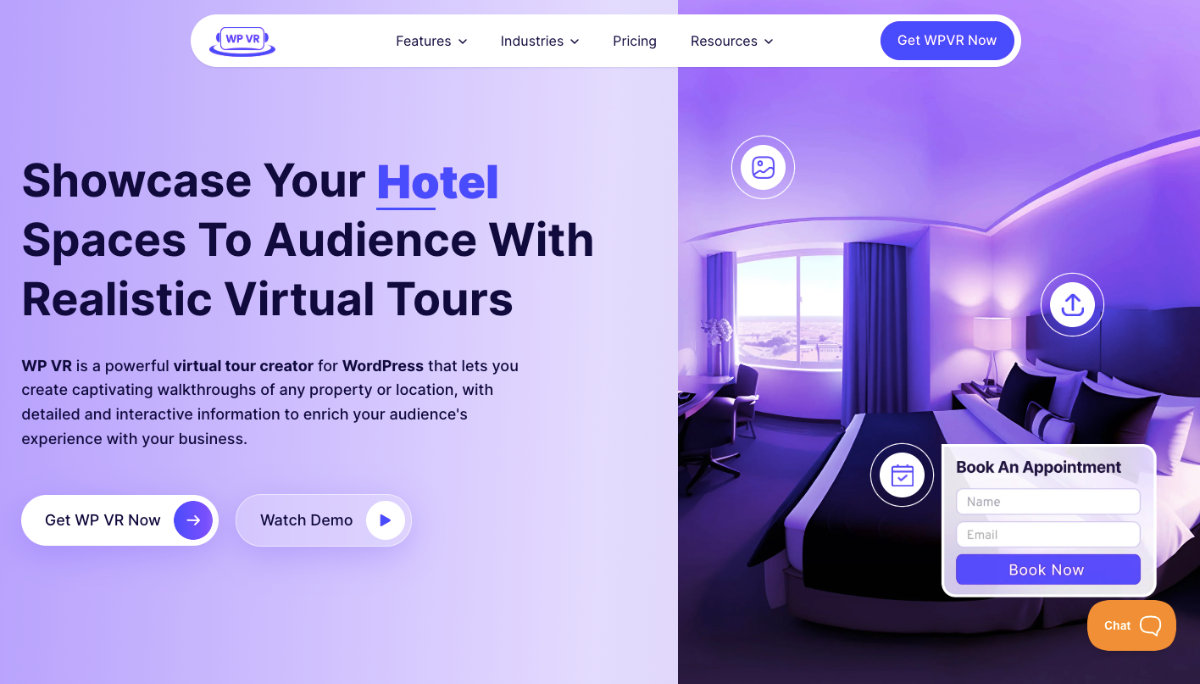
Now, I will introduce a tool WPVR that can significantly streamline and enhance the process of selling your commercial property quickly.
Here’s how this powerful tool can be specifically tailored to meet the demands of the commercial real estate market:
i. Craft Captivating Virtual Tours
WPVR helps you create 360-degree virtual tours of your commercial property. This lets buyers explore your space online anytime, saving you time and effort.
Virtual tours are perfect when you want to sell commercial property fast. They show the layout clearly, which is important for big spaces like warehouses or offices.
For example, if you’re selling a warehouse, a virtual tour lets buyers walk through virtually. It helps them decide quicker and reach out sooner.
ii. Share Widely to Engage
Get your virtual tour in front of more eyes by sharing it across websites, social media, and email. WPVR makes it simple to connect with buyers wherever they’re browsing.
The more people see your listing, the faster you’ll generate interest, perfect for selling commercial property by the owner. It also cuts down costs tied to traditional selling.
For example, you are selling commercial property, shared your virtual tour on LinkedIn and landed serious buyer inquiries within days.
iii. Explore Anywhere, Anytime:
WPVR virtual tours work seamlessly on any device, desktop, tablet, or mobile. This gives prospective buyers flexibility to explore your space on their own schedule.
It’s a major plus when selling commercial real estate for cash, especially to busy investors or out-of-town buyers who can’t visit in person.
For instance, as a commercial property owner, you used WPVR to showcase an office space, and a remote buyer made a cash offer after viewing the tour over lunch.
iv. Spotlight What Matters

Use WPVR’s interactive hotspots to showcase the best parts of your property, like modern upgrades or prime locations. This helps buyers quickly notice what sets your space apart.
It’s a great strategy for selling commercial property fast, especially when targeting business owners who know exactly what they need.
For example, you used hotspots to highlight recent capital improvements and secured an offer within days from a retail investor.
v. Capture Interest with Integrated Lead Forms
You can add lead capture forms directly into your WPVR virtual tour to grab buyer info as they explore. This lets you follow up quickly and stay ahead of the game.
Fast responses help speed up deals, super helpful if you’re wondering how long it takes to sell a commercial property.
For example, you can get a serious inquiry the same day someone views your tour—just like one seller who got 3 in 24 hours.
vi. Build Confidence
When you show a full virtual view of your property, buyers feel more confident about what they’re seeing. WPVR gives them a real sense of space, so there are fewer surprises.
This level of transparency helps buyers make quicker decisions, no guessing or back-and-forth needed. It’s a smart move if you’re trying to avoid delays.
For instance, one business owner mentioned they chose a property after a single virtual tour because it answered all their questions upfront-saving time and money.
vi. Make Informed Choices, Fast
With WPVR, you’re giving buyers everything they need upfront—detailed visuals, layout, and features—so they can make confident decisions without second-guessing.
This can really speed things up, especially when your goal is to sell your commercial property fast without constant back-and-forth.
For example, when I listed my small office building using WPVR, a buyer reached out within 48 hours—he said the virtual tour answered all his questions before we even spoke.
vii. Convenient Access, Anytime:
Your virtual tour is available 24/7, so potential buyers can explore your property whenever it suits them, no need to book appointments or adjust to time zones.
This works great for attracting out-of-state or international investors. One of my buyers from Texas made an offer on a retail space I was selling in Florida—he toured it virtually at midnight his time.
For example, a buyer in another time zone can tour your property anytime without waiting. Imagine closing a deal while you’re asleep because they could explore your commercial space whenever it suited them.
Conclusion
Selling your commercial property can feel overwhelming, but it doesn’t have to be. When you have a clear plan, you stay in control and avoid stress.
Taking time to improve your property’s appeal and understanding the market will help you attract the right buyers. These steps can speed up your sale.
Working with the right tools and support makes a big difference in your sales. You’ll connect with more buyers and get better offers.
If you are ready to simplify your commercial real estate journey, try WPVR to open smart features that help you sell your commercial real estate quickly and confidently.
** FAQs **
What are the advantages of selling commercial property by owner?
- When you sell your commercial property yourself, you save money on agent fees. You also get to control the price, marketing, and how you handle negotiations. With a reliable listing service, reaching the right buyers becomes much easier.
How to Sell Commercial Real Estate for Cash?
- You can go for a fast cash sale if you want to skip delays and paperwork. Cash buyers usually offer a quicker close without needing loan approval. This means you get a fast cash payment and a much smoother experience.
What Are The Typical Costs of Selling a Commercial Property?
- You’ll likely pay closing costs, attorney fees, and maybe for small repairs. These costs can vary, so it’s good to plan ahead. Understanding the commercial property market helps you budget more confidently
How to Sell Commercial Property Fast?
- If you don’t know how to sell commercial property fast, consider pricing it competitively based on market trends. It enhances its curb appeal and utilizes digital marketing techniques such as virtual tours, WPVR, and targeted advertising.
How Long Does It Take to Sell a Commercial Property?
- It really depends on your property, price, and location. Some sell in a few months, while others take longer to find the right buyer. The better your listing and strategy, the faster it can go.
![How to Sell Commercial Real Estate – 10 Proven Steps [2025]](https://rextheme.com/wp-content/uploads/2024/04/19.-How-to-Sell-Commercial-Real-Estate-10-Proven-Steps.png)
